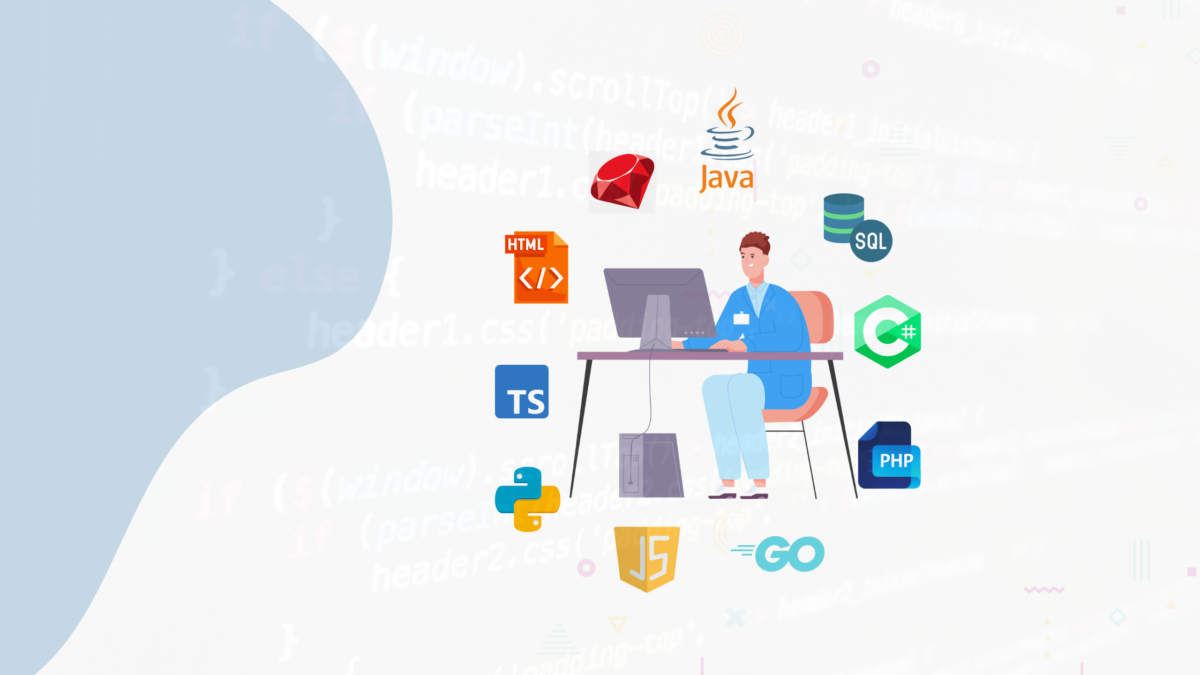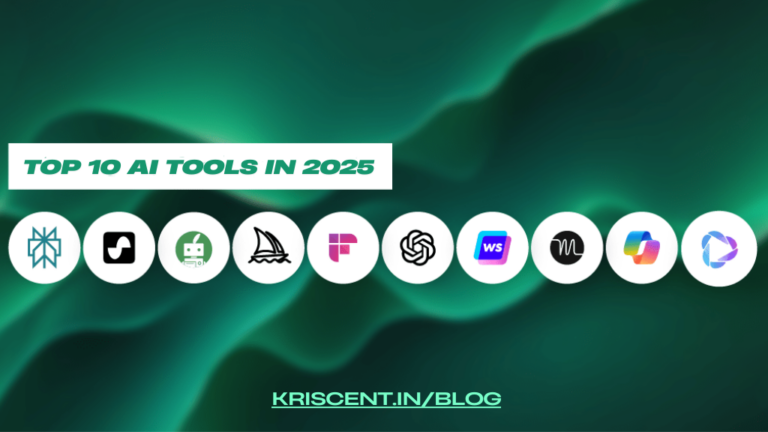Building websites has become one of the most important skills in the modern world. Whether you want to build an advanced web application, a business website, or just a personal blog, choosing the right programming language is crucial. In this tutorial, we will cover the top 10 popular programming languages for building websites, along with a brief description of each of them and how they can be used in your project. So here are Top 10 Programming Languages for Web Development in 2024 :-
1. JavaScript
What is it?
JavaScript is the backbone of web development, responsible for making websites interactive and dynamic.
Why use it?
-
- Front-End Development: It’s essential for creating interactive elements on websites.
-
- Wide Use: Almost every website uses JavaScript, making it a must-know language.
-
- Frameworks and Libraries: Tools like React, Angular, and Vue.js make building complex applications easier and faster.
- Node.js: Allows JavaScript to be used on the server side, enabling full-stack development with one language.
Who uses it?
Every major website, including Google, Facebook, and YouTube, utilizes JavaScript.
2. HTML/CSS
What is it?
HTML (Hypertext Markup Language) and CSS (Cascading Style Sheets) are the fundamental building blocks of web development.
Why use it?
-
- Structure and Style: HTML structures the content, while CSS styles it.
-
- Easy to Learn: They are relatively straightforward, making them great for beginners.
- Responsive Design: CSS is crucial for creating responsive websites that work on all devices
Who uses it?
Every website on the internet relies on HTML and CSS.
3. Python
What is it?
Python is a versatile, high-level programming language known for its readability and simplicity.
Why use it?
-
- Web Frameworks: Django and Flask are popular frameworks that simplify web development.
-
- Ease of Learning: Python’s clear syntax makes it an excellent choice for beginners.
- Versatility: Beyond web development, Python is used in data analysis, AI, and more.
Who uses it?
Companies like Instagram, Spotify, and Reddit use Python for their web applications.
4. PHP
What is it?
PHP is a server-side scripting language designed specifically for web development.
Why use it?
-
- Server-Side Development: It’s used to build dynamic web pages that interact with databases.
-
- Content Management Systems: Powers popular CMS platforms like WordPress, Joomla, and Drupal.
- Large Community: Extensive resources and a vast community for support.
Who uses it?
Websites like Facebook, Wikipedia, and WordPress rely on PHP.
5. Ruby
What is it?
Ruby is a dynamic, object-oriented programming language known for its simplicity and productivity, especially with the Ruby on Rails framework.
Why use it?
-
- Web Development: Ruby on Rails simplifies building complex websites quickly.
-
- Readable Syntax: Designed to be easy to read and write.
- Active Community: Plenty of gems (libraries) and strong community support.
Who uses it?
Companies like Airbnb, Shopify, and GitHub use Ruby on Rails.
6.Java
What is it?
Java is a robust, object-oriented programming language widely used in enterprise-level applications.
Why use it?
-
- Platform Independence: Java programs can run on any device with the Java Virtual Machine (JVM).
-
- Enterprise Applications: Commonly used for large-scale applications and Android app development.
- Web Frameworks: Frameworks like Spring make Java a solid choice for web development.
Who uses it?
Companies like LinkedIn, Amazon, and many financial institutions use Java for their web applications.
7. TypeScript
What is it?
TypeScript is a superset of JavaScript that adds static types, making it easier to manage large codebases.
Why use it?
-
- Type Safety: Helps catch errors early through static typing.
-
- Improved JavaScript: Offers all JavaScript features plus additional tools.
- Compatibility: Works seamlessly with JavaScript libraries and frameworks.
Who uses it?
Large-scale applications at companies like Microsoft, Slack, and Asana benefit from TypeScript.
8. SQL
What is it?
SQL (Structured Query Language) is used to manage and manipulate databases.
Why use it?
-
- Database Management: Essential for interacting with relational databases.
-
- Data Manipulation: Allows for querying, updating, and managing database data efficiently.
-
- Integration: Works with many web development languages to handle backend data.
Who uses it?
Any website that relies on a database, such as e-commerce sites and social media platforms, uses SQL.
9. C#
What is it?
C# (pronounced C-sharp) is a language developed by Microsoft, commonly used for developing Windows applications and web services.
Why use it?
-
- ASP.NET: Powerful framework for building dynamic web applications.
-
- Microsoft Ecosystem: Ideal for developing applications within the Microsoft ecosystem.
-
- Game Development: Used with Unity for game development, adding versatility.
Who uses it?
Companies like Stack Overflow, Microsoft, and many enterprise-level businesses use C#.
10. Go (Golang)
What is it?
Go, also known as Golang, is a statically typed language developed by Google, designed for simplicity and performance.
Why use it?
-
- Performance: Compiled language that offers the performance of C/C++ but with memory safety.
-
- Concurrency: Excellent support for concurrent programming, making it great for web servers.
- Simplicity: Easy to write and understand, focusing on clear and efficient code.
Who uses it?
Companies like Google, Uber, and Dropbox use Go for high-performance web applications.
Choosing the Right Language for Your Web Project
When deciding which programming language to use for web development, consider:
-
- Project Requirements: What type of website are you building? An e-commerce site, a blog, a social network?
-
- Language Strengths: Choose a language that aligns with your project needs. For instance, JavaScript for front-end interactivity, Python for rapid development with Django, or PHP for CMS-based sites.
-
- Learning Curve: Some languages are easier to learn than others. HTML/CSS and Python are beginner-friendly, while languages like Java and Go might have a steeper learning curve.
- Community and Resources: A strong community and plenty of resources (tutorials, documentation, forums) can significantly ease your learning process.
Ultimately, the best way to learn is through practice. Pick a language that you love to learn, and as you go through the process, you’ll find the one that best suits your needs and wants. Enjoy coding!
Thank you for reading our blog and if you want to read about Career in Information Technology: Tips and Strategies then read this blog.




%20(1)%201.webp?updatedAt=1725274383969)









Thanks for one’s marvelous posting! I truly enjoyed reading it, you can be a great author.
I will make sure to bookmark your blog and will come back down the road.
I want to encourage yourself to continue your great job,
have a nice morning!
Wow that was strange. I just wrote an very long comment but after I clicked submit my comment didn’t appear.
Grrrr… well I’m not writing all that over again. Regardless,
just wanted to say fantastic blog!
“Helpful and concise, awesome!”